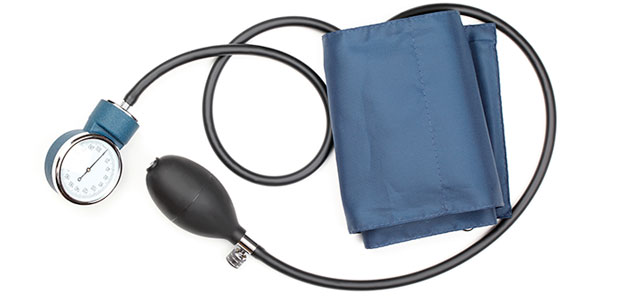Advertisement
Silent Killer
Although high blood pressure is a serious disease, it is often a silent one, with most people experiencing no symptoms. Yet high blood pressure contributes to more than 75 percent of all strokes and heart attacks and is a factor in many cases of kidney failure, sexual dysfunction, and mental deterioration in the elderly. Popular … Continued

Although high blood pressure is a serious disease, it is often a silent one, with most people experiencing no symptoms. Yet high blood pressure contributes to more than 75 percent of all strokes and heart attacks and is a factor in many cases of kidney failure, sexual dysfunction, and mental deterioration in the elderly.
Popular drug treatments to lower blood pressure have side-effects that tend to make us feel worse than before medication. Fortunately, safe and effective natural products can help lower blood pressure.
Start with Food
Good food choices for people with high blood pressure include celery, garlic, and onions. Nuts and seeds or their oils are also beneficial because of their essential fatty acid content, as are cold-water fish (salmon, mackerel) or fish oil products concentrated for eicosapentaenoic and docosahexaenoic acids (EPA and DHA). Green leafy vegetables are a rich source of calcium and magnesium; whole grains and legumes provide fibre; broccoli and citrus fruits are rich in vitamin C – all proven contributors to lower blood pressure.
Celery is a particularly interesting recommendation for high blood pressure. Research at the University of Chicago Medical Center showed that a very small amount of the celery compound 3-n-butyl phthalide (3nB) can lower blood pressure in animals by 12 to 14 percent. The study was inspired by the father of one of the researchers, who, after eating one-quarter pound (120 grams or about two stalks of celery) every day for one week, observed his blood pressure drop from 158 over 96 to a normal reading of 118 over 82.
If you don’t want to eat that much celery, take celery seed extract standardized to contain 85 per cent 3nB at a dosage of 150 mg daily. This nutrient appears to help lower blood pressure by acting as a diuretic and vasodilator through impacting the production of prostaglandins in a manner similar to calcium-channel blocking drugs. This effect increases the elasticity of the blood vessels and leads to lower blood pressure readings.
Garlic and onions are also important foods for lowering blood pressure. Although recent research has focused on the cholesterol-lowering properties of garlic and onions, a garlic supplement that delivers at least 4,000 mcg of allicin daily has been proven to improve blood pressure readings.
Bonito Peptides
A mixture of nine peptides (proteins) from bonito (a member of the tuna family) may also work to lower blood pressure. Bonito peptides inhibit the formation of active angiotensin, a substance that increases both the fluid volume and the degree of constriction of the blood vessels. They help to relax arterial walls and reduce fluid volume.
Three major clinical studies show that bonito peptides are effective in about two-thirds of people with high blood pressure. Bonito peptides significantly reduced blood pressure, typically reducing the systolic by at least 10 mm Hg and the diastolic by seven mm Hg in people with borderline and mild hypertension. Unfortunately, they had no effect on the blood pressure of people without hypertension. A typical dosage of three 500 mg capsules daily showed no side-effects or adverse drug interactions, nor did a safety study with dosages as high as 30 g daily. Consequently, bonito peptides can be combined with conventional hypertensive drugs.
Increase the amount of onion, garlic, and celery in your diet; then add bonito peptides as all natural ways to reduce blood pressure.




